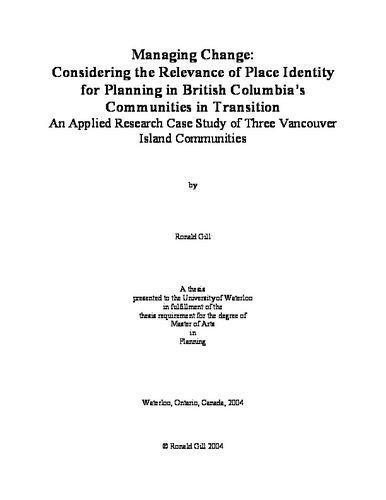| dc.description.abstract | Beginning in 1980, large forestry corporations in British Columbia began to rapidly downsize and restructure their operations. The combination of volatile international market conditions, increasing demands for environmental conservation, First Nation?s land claims, higher stumpage rates, American protectionism, a declining timber supply, and introduction of labor saving technologies, made it no longer profitable for these companies to employ large numbers of workers under a Fordist organizational structure. The tremendous job losses seriously compromised the sustainability of forestry dependent communities throughout the province.
The responses from forestry based communities in B. C. have been diverse. Some have chosen to take a more passive approach and have become bedroom communities to larger urban centers or retirement destinations. Others have actively pursued economic diversification through increased entrepreneurial activities. No matter which alternative individual communities have chosen to pursue, it is evident that they are all undergoing a significant transformation.
This exploratory study examines how the identity (or image) of these places has evolved, and investigates the impact this has had on local residents. The three Vancouver Island communities of Chemainus, Sooke, and Port Alberni have been selected as case studies. A variety of quantitative and qualitative research methods are employed including a resident survey, personal interviews, and review of real estate guides and promotional materials.
Overall the findings suggest that the identity associated with each case study community has both positively and negatively perceived elements. With a greater appreciation for these elements, it was possible for the researcher to make a variety of justifiable recommendations to improve current planning policies and processes, in each of the case studies, which will help them build a stronger, more positive image, and therefore become healthier, more viable, and sustainable communities. By emphasizing the significance of identity for community planning, and by outlining the participatory methods necessary to conduct an in depth identity investigation, this study also paves the way for future investigations on other British Columbia communities in transition and for the widespread use of the principle of identity as a contributory decision-making strategy in the planning profession. | en |

